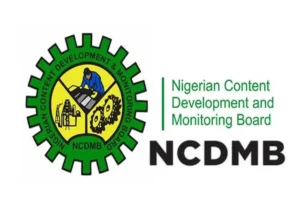Debt profile: Tinubu moves for tax reforms to end over-reliance on borrowing
…Targets 18% Tax-to-GDP ratio in three years
…Inaugurates Committee on Fiscal Policy, Tax Reforms for revenue
…Crisis rocks mining sector amidst hustle for revenue
…Stakeholders accuse Govs of arbitrary abuse of Mining Act
By Moses Adeniyi
As a strategy to ease the burden of huge debt on the Country and boost the revenue profile of the country, President Bola Tinubu has commenced a move to reform the administration of taxation in the Country to rake in more revenue, while seeking to deflate over reliance on borrowing.
The debt burden on the Country and the cost of servicing same recently informed over 90 per cent of the Country’s revenue being channeled to service debts.
The immediate past Muhammadu Buhari’s administration was tagged with its recycling resort to heavy borrowing, a development that saw the Country’s public debt profile rose from N12.12trillion as at June 2015 to over 46.25trn at the fourth quarter of 2022 and N49.85trillion as at June, 2023.
President Tinubu had last month, amidst outcry of hardship worsened by the removal of subsidy on premium motor spirit (PMS), popularly called petrol, written to the National Assembly to approve a World Bank loan to the tune of $800million to fund palliatives to less privileged households.
However, President Tinubu on Tuesday expressed his administration’s commitment to break the cycle of overreliance on borrowing for public spending which has left the Country with the burden of debt servicing.
Consequently, the President has inaugurated a committee, tagged “the Presidential Committee on Fiscal Policy and Tax Reforms,” charged with the responsibility to devise measures of reforms to transform tax administration in the Country for more revenue.
Also having for its terms of reference are measures to improve the Country’s business environment.
The mandate of the Committee were subdivided into three main areas of fiscal governance, tax reforms, and growth facilitation.
Tinubu in Abuja, while inaugurating the Committee, acknowledged that Nigeria was behind in current international standing in tax administration, mentioning the Country was still facing challenges in areas such as ease of tax payment and its Tax-to-GDP ratio.
According to him, the aim of the Government is to transform the tax system to support sustainable development, while achieving a minimum of 18 per cent tax-to-GDP ratio within the next three years.
The President directed the committee to within six months submit its recommendations, while implementation to institute the reforms would be facilitated within a year.
He also directed all government ministries and departments to cooperate fully with the committee towards achieving its mandate.
Tinubu said that the Committee has the responsibility of assisting the administration in meeting the high expectations of citizens to make their lives better.
“We cannot blame the people for expecting much from us. To whom much is given, much is expected.
“It is even more so when we campaigned on a promise of a better country anchored on our Renewed Hope Agenda.
“I have committed myself to use every minute I spend in this office to work to improve the quality of life of our people,” he said.
He added that, “Our aim is to transform the tax system to support sustainable development while achieving a minimum of 18 per cent tax-to-GDP ratio within the next three years.
“Without revenue, government cannot provide adequate social services to the people it is entrusted to serve.
“The Committee, in the first instance, is expected to deliver a schedule of quick reforms that can be implemented within thirty days.
“Critical reform measures should be recommended within six months, and full implementation will take place within one calendar year,” the President directed.
On the premise of the inauguration of the committee, Special Adviser to the President on Revenue, Mr Zacchaeus Adedeji, harped on Tinubu’s antecedent in revenue generation, particularly when he served as Governor in Lagos State.
“Mr President, you have the pedigree when it comes to revenue transformation. You demonstrated this when you were the Governor of Lagos state over 20 years ago,” Adedeji said.
He described members of the Committee, drawn from the public and private sectors, as accomplished individuals from various sectors.
Chairman of the Committee, Mr Taiwo Oyedele, pledged the commitment of members to give their best in the interest of the nation.
According to him, many of the existing laws on revenue and taxation are outdated.
“Hence, they require comprehensive updates to achieve full harmonisation to address the multiplicity of taxes, and to remove the burden on the poor and vulnerable while addressing the concerns of all investors, big and small,” he said.
Crisis rocks mining sector amidst hustle for revenue
Meanwhile as talks on diversifying the economy for a robust revenue base attract more attention, stakeholders in the mining sector have lamented what they described as an avalanche of Executive Orders, banning mining activities in some States like Ebonyi, Osun, Enugu, Cross River, Taraba and others.
Miners under the auspices of Miners Association of Nigeria (MAN), on Tuesday, condemned alleged State Government’s abuse of the Mining Act 2007 and Mining Regulations 2011.
They lamented that not quite long after the swearing-in of the new governors the mining industry started witnessing the so called avalanche of Executive Orders, banning mining activities in some States, a development they decried has led to alleged invasion and jailing of staff of registered mining companies.
The miners decried that a situation where a group of stakeholders is being stigmatised as the perpetrators of illegality by the holders of coercive machinery of State, is totally unacceptable.
The National President, Miners Association of Nigeria (MAN), ‘Dele Ayanleke, in an address at a press conference, expressed displeasure over alleged invasion and jailing of registered mining company’s staff by Taraba State Government’s task force.
“While we appreciate the ambitions of the new leaderships in our various states to accelerate socioeconomic development, leveraging on the nature’s endowments within their domains, it is of no less importance to pursue these ambitions within all extant constitutional and legal frameworks in order not to breed anarchy and constitutional crisis that may render their efforts and those of the national government unproductive.
“Not quite long after the swearing-in of the new governors that the mining industry started witnessing an avalanche of Executive Orders, banning mining activities in some states like Ebonyi, Osun, Enugu, Cross River, Taraba and others.
“Taraba State Government went as far as setting up a Task Force on illegal mining and deforestation with full authority to arrest, summarily prosecute and sentence anyone found culpable under its own laws.
“Miners Association of Nigeria, as the umbrella body of operators and investors in the solid minerals sector value-chain, has never been, neither would it be, in support of illegal mining operations under any guise. And our resolve to ensure a sanitised mining environment is the reason and motivation for our active collaborations with the Ministry of Mines and Steel Development and its agencies over the years, in the overall interest of our national economy.
“We are, however, of the belief and conviction, that the issue of illegality in the system must be appraised and confronted in the whole. A situation where a group of stakeholders is being stigmatised as the perpetrators of illegality by the holders of coercive machinery of state, is totally unacceptable.
“Section 44(3) of the 1999 Constitution of the Federal Republic of Nigeria (as amended) and section 1(1) of the Nigeria Minerals and Mining Act (NMMA), 2007, place the ownership of mineral resources and mining regulations in Exclusive Legislative List with enough provisions to address the socioeconomic and environmental concerns of the lower tiers of government.
“By the various provisions of the above instruments, the Federal Government, through her appropriate agencies, is saddled with the oversight responsibility on any mining and minerals related issues; including, but not limited to, mining titles administration.
“Drawing from the above, Taraba State Government, or any other state/local governments for that matter, does not have the competence to determine the legality of any operator; such competence resides with the Ministry of Mines and Steel Development or any of its agencies, saddled with the various regulatory functions.
“For instance, among the 48 so-called illegal miners now in jail in Taraba State, there are seven members of staff of a company with valid Mining Lease, whose operational site was invaded by operatives of the Task Force.
“The company in question is one of our members by name AAY INTERNATIONAL MINING COMPANY LIMITED, with a valid Mining Lease of 25 years tenor and huge investment in exploration, equipment and human capital development.
“While not being apathetic to the revenue generation drive of our State Governments, it is advisable that they be more guided by the rule of law which they have put themselves under oath to uphold and defend.
“In upholding the rule of law, the NMMA, 2007 and the Mining Regulations, 2011, made enough provisions for special vehicles that can be explored by the lower tiers of government and mining communities to benefit from the exploration of the mineral endowments within their domains and contribute to conversations around policy issues for environmental sustainability of mining activities,” Ayanleke said.
He, however, noted that the outcry is not to vilify or wage war against any State Government, but rather as part of their advocacy “to draw attention to a critical governance impediment militating against the solid minerals sector as a veritable option in the government economic diversification agenda.”
“A nation yearning to fill the investment gaps in developing her natural endowments to boost her economic growth cannot afford to treat the few audacious local investors in the way our state actors are going about it and expect a different result,” he added.
He also appealed to both Federal and State Governments to respect the constitution and not to take laws into their hands at the detriment of the economy and livelihood of Nigerians.
The miners demanded Tinubu to roll out his plans for the solid minerals sector for policy direction, while calling on him to call State Governors to order.
“It is on this note that we hereby appeal to the Federal Government of Nigeria, under President Bola Ahmed Tinubu (GCFR), to call our state governments to order by honouring their oath to defend and uphold the Constitution of the nation in order to engender an atmosphere of mining best practices so that local investors can contribute their quotas to the economic development of the country and open windows for foreign investments,” they stated.
“In conclusion, the Miners Association of Nigeria will like to make a clarion call to His Excellency, Asiwaju Bola Ahmed Tinubu, GCFR, President and Commander-In-Chief of the Armed Forces of the Federal Republic of Nigeria, on the need to come up with the agenda of his administration on the solid minerals sector.
“At a time when the whole world is thinking green energy and with our huge endowments in minerals needed to be among global actors, Nigeria could not afford to help other nations develop their industries through mass exportation of our solid minerals raw, while our citizens wallow in poverty.
“It is time our government takes a cue from the initiative of our founding fathers, who invited technologies that turned our agricultural resources into huge industrial development with attendant wealth creation in the post-independence First Republic.
“On our part as a body of investors and operators, we shall reach out to the new administration with a blueprint of our contributions to a mining regime that will support the economic diversification agenda in pragmatic terms,” they added.
Although, the Federal Government have recently eyed solid minerals sector for diversification as the need for stronger revenue base became more pressing, the regulation of the mining sector has been clouded with controversies, particularly bordering on issues relating to illegal operations and licensing, among other intertwined complications.




